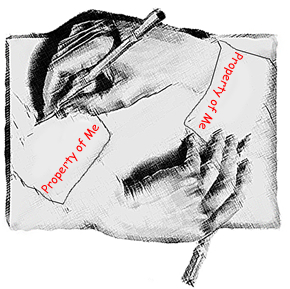For the Aspiring Politician: What to Study
March 25, 2009 by Paul McKeever · 2 Comments
 Today, I received a letter that asked me for some advice. The young man, who had chosen to leave university after two years of bad education in a university, asked what he should study as an aspiring politician. I gave him the following advice:
Today, I received a letter that asked me for some advice. The young man, who had chosen to leave university after two years of bad education in a university, asked what he should study as an aspiring politician. I gave him the following advice:
“When I was in high school, I asked a local politician what I should study in order to be a politician. He said: “Study whatever you want”. At the time, I thought he was just being rude; just saying “get out of the way kid, you’re bothering me”. However, I now know that he was right, at least in the sense that he would have defined “politician”. Read more
Freedom and the Proper Regulation of Speech
September 24, 2008 by Paul McKeever · 9 Comments
 Freedom of speech. Ironically, it is a political subject about which most people talk without saying anything.
Freedom of speech. Ironically, it is a political subject about which most people talk without saying anything.
“Freedom of speech has limits”, some say, just before, reflexively, they trot out the inevitable “for example, you can’t yell fire in a crowded movie theatre”. I always imagine them silent, feeling legally bound not to tell anyone in the theatre that the snack bar is on fire. Read more
Reason versus "Self-Ownership"
September 16, 2008 by Paul McKeever · 6 Comments
 There are those who believe that the mind cannot exist independently of the activities of the brain; that the mind and the brain are one; that the mind and the body are one. There are also those who believe that the mind and the body are separable or separate – for example those who believe that there is a soul which inhabits the body at birth, or perhaps at baptism, and which leaves the body when the mind dies. Your position on the separability of mind and body has a logical implication for your position on “self-ownership”. The reverse is also true: your position on the validity of the concept “self-ownership” implies your agreement with, or disagreement with, an underlying assumption concerning the separability or non-separability of mind and body. Read more
There are those who believe that the mind cannot exist independently of the activities of the brain; that the mind and the brain are one; that the mind and the body are one. There are also those who believe that the mind and the body are separable or separate – for example those who believe that there is a soul which inhabits the body at birth, or perhaps at baptism, and which leaves the body when the mind dies. Your position on the separability of mind and body has a logical implication for your position on “self-ownership”. The reverse is also true: your position on the validity of the concept “self-ownership” implies your agreement with, or disagreement with, an underlying assumption concerning the separability or non-separability of mind and body. Read more
Hate Speech Complaint Time? Suzuki's Powerwise.ca Site Promotes Anti-immigration
June 11, 2008 by Paul McKeever · 6 Comments
 Look now, and you’ll find yet another piece of evidence that the current green movement is still just the old, German, Völkisch movement; a movement still motivated by a fear that there aren’t enough resources for everyone; a movement that, so motivated, seeks to reduce the earth’s population. The Völkisch movement got a bit of an historical black eye when supporting Hitler’s approach of murdering millions of Jews, and seizing the land occupied by non-German Europeans and Asians so as to make lebesraum for the Aryan “race” of blue-eyed, Volkswagen-driving blond-haired ubermen. So today’s Volkisch movement has replaced the swastika with a sunflower, masked its red nature in the colour “green”, and changed its approach: instead of eliminating all but the Germans, eliminate Germans too, by making it too expensive to procreate (or to produce anything, for that matter) in an industrialized country, no matter what your genetic make-up. Read more
Look now, and you’ll find yet another piece of evidence that the current green movement is still just the old, German, Völkisch movement; a movement still motivated by a fear that there aren’t enough resources for everyone; a movement that, so motivated, seeks to reduce the earth’s population. The Völkisch movement got a bit of an historical black eye when supporting Hitler’s approach of murdering millions of Jews, and seizing the land occupied by non-German Europeans and Asians so as to make lebesraum for the Aryan “race” of blue-eyed, Volkswagen-driving blond-haired ubermen. So today’s Volkisch movement has replaced the swastika with a sunflower, masked its red nature in the colour “green”, and changed its approach: instead of eliminating all but the Germans, eliminate Germans too, by making it too expensive to procreate (or to produce anything, for that matter) in an industrialized country, no matter what your genetic make-up. Read more
Consent, Coercion & Legal Tender: Understanding Money & Banking, Part 6
June 8, 2008 by Paul McKeever · 1 Comment
 Late last night I released Part 6 of my Understanding Money & Banking video series. Titled “Consent, Coercion & Legal Tender“, it deals only with currency (as opposed to credit). In particular it focusses one of the key differences between paper bank notes and gold/silver coins: the source of the value of each. Read more
Late last night I released Part 6 of my Understanding Money & Banking video series. Titled “Consent, Coercion & Legal Tender“, it deals only with currency (as opposed to credit). In particular it focusses one of the key differences between paper bank notes and gold/silver coins: the source of the value of each. Read more
Lobbying for Death
May 8, 2008 by Paul McKeever · Leave a Comment
In response to my blog entry about David Archuleta, Mark Steyn, and Reason, a facebook friend commented, in part:
I’m worried what those law students will be trying to do once they pass the bar. Sounds like they want to criminalize people’s feelings and anything that may stir the pot in a direction they don’t like. Thought police anyone?
I replied:
Law is a description of the circumstances under which the government may deprive you of liberty or property. It can be consistent with the facts of reality (including the nature of man), or it can be contrary to the facts of reality.
To tell your child that a given religious belief is contrary to the facts of reality, or that it foretells a physical threat to ones liberty or property, may very well offend those who hold the belief, but it may very well save the life of ones child. All of the good feelings in the world won’t allow someone to survive. All of the ignorance in the world will certainly decrease the likelihood of ones survival/happiness.
Freedom requires that a government’s ethical standard be the life of a man qua man. That requires government always to be consistent with the facts of reality.
To call upon the government to seize control of a person’s liberty or property on the ground of emotion is to call upon the government to abandon human life as its ethical standard. It is to lobby for death.
Bad Arguments Against Censorship: "Better Democracy"
April 28, 2008 by Paul McKeever · 3 Comments
Seeing distinctions everywhere there is not a difference, Canada’s collectivist establishment is desperate to take down the governing collectivist “Conservatives“, and to replace them with the “natural governing party”, the collectivist “Liberals“. They hope thereby to achieve the titanic victory of doing away with the arch evil of redistributing wealth via tax credits to the “poor”, and instead redistributing wealth via righteous tax increases to the “rich”.
Enter Gerry Nicholls, the former chief of the National Citizens Coalition in Canada whose columns now appear in Canada’s major dailies from time to time. In one of his columns, published in the Edmonton Sun on April 23rd, he had the right proposal:
…we should scrap all these election gag laws…
Cutting his rationale down to the essential quotations:
None of this is good for democracy.
That’s why we should scrap all these election gag laws designed to regulate political spending and to muzzle free speech.
[…]
Democracy works best when there is a free marketplace of competing ideas.
(emphasis added).
I want to address Gerry’s rationale but, before doing so, let us try to understand it a bit better.
I begin with Gerry’s use of the word “democracy”. Given how utterly corrupted the meaning of the word democracy has become, it is not entirely clear what concept Gerry is referring to when he uses the word “democracy”. Arguably, the best solution in this case is the process of elimination.
Consider first Gerry’s “minarchist” (as in: “the government that governs least governs best”) libertarian streak. Like many others, minarchist libertarians regard life, liberty and property as inalienable rights; as things that cannot be trumped by the whims of the majority. Therefore, it is extremely doubtful that, by “democracy”, Gerry is referring to “majority rule”.
“Damned to Repeat It: Part I – Libertarianism”
Consider next the idea that “democracy” is a concept that refers to the source of a government’s powers. When used in this way, democracy refers to the idea that governmental authority stems from man, upon whom the facts of reality impose morality. It is doubtful that, by “democracy”, Gerry is referring to the source of a government’s power because the existence/non-existence of a “marketplace of ideas” is as possible in a theocracy (which regards god as the source of a government’s power) as in a democracy.
As I see it, that leaves one likely inference: by “democracy”, Gerry means “elections”. This is a definition of democracy shared by countless talking heads, journalists, and political junkies, and by those who convinced George W. Bush that setting up elections in Middle East countries is the same as making those countries democratic. Although Gerry is free to respond to this article with a correction, I must conclude that when Gerry says that “Democracy works best when there is a free marketplace of competing ideas”, what he really means is that “Elections work best when there is a free marketplace of competing ideas”.
Now, let us consider what Gerry means by a “free market” in this context. In a free market of goods and services, every person gets what he pays for and pays only for what he gets. In a free market of goods and services, one would get only the election commercials one paid for, and would pay only for the election commercials one got. However, Gerry is not referring to a free market of goods and services: the issue here is not, for example, whether regulations have given one television network an unfair advantage over another. Gerry is referring to a free market of ideas competing for the minds and ballots of voters.
Now, forgive me, but I think Gerry is just talking loosely. Too loosely. In fact, I do not believe Gerry really even means “free market of competing ideas” when he uses the term. If he does, I do not believe he has thought it through very well.
Gerry is not alone, however. The reference to a “free market of ideas” is a common libertarian practice. It would not surprise me were I to discover that that practice owes its genesis to the fact that libertarianism is a movement that was spearheaded not by philosophers, but by pro-capitalist economists (such as Murray Rothbard). To the man with a hammer, every problem is a nail and, to a libertarian economist, every philosophical issue is an aspect of the free markets vs. central planning debate. However, applied to the situation of voters weighing arguments during an election and voting accordingly, the analogy proves to be flawed. In a free market, every individual gets the product he pays for with his dollars. In contrast, in an election, an individual does not get the idea he voted for unless the majority of other individuals voted for the same idea. In truth, even that is wrong, because the majority of people do not really vote for ideas: they vote for parties (especially for parties that have no ideas). Therefore, when Gerry writes “free market of competing ideas”, he is either wrong, or he does not really mean it.
Giving Gerry the benefit of the doubt, what he really means is not “a free market of competing ideas” but: the absence of censorship. I do not think I have mischaracterized his argument – “Democracy works best when there is a free marketplace of competing ideas” – when I strip it of ambiguous jargon and loose metaphor to translate it plainly as: elections work best in the absence of censorship.
Assuming my translation is correct, I agree with Gerry that election finance laws impose an instance of censorship, and I agree that election finance laws should be scrapped. However, I submit that Gerry is entirely wrong when it comes to his rationale for scrapping election finance laws. As with all matters of government policy, the essential and defensible rationale for striking down election finances laws is: such laws are contrary to the survival and happiness of human beings.
The facts of reality – including facts that pertain to the nature of man – are such that no man can achieve his own happiness if he is prohibited from acting upon his own rational decisions. Freedom, properly defined, is control over ones own life, liberty and property. Without freedom – without that control – the rational decisions upon which a mans survival and happiness depend cannot be acted upon. Without freedom, a man’s mind is, in effect, paralyzed. An unfree rational man is the functional equivalent of a newborn baby or, worse, a vegetable. His survival is dependent upon the whims of those who feed, house and clothe him. And, though he can be relieved of pain and suffering, his happiness is impossible, because happiness is the result of a personal achievement: the successful pursuit of ones rationally-chosen values. Such achievements require freedom.
The role of government is to ensure that each individual is not deprived of control over his own life, liberty or property without his consent. By so defending freedom, a government defends human life.
Fining or imprisoning a person for spending his own money on a perfectly peaceful service – message distribution – is a deprivation of a person’s freedom; in particular, it is a deprivation of a person’s control over his own property. Such deprivation is wrong not because it prevents elections from working best and not because it is thought to be unneeded, but because it opposes and undermines the living of a rational life; of a human life.
Elections can work better in the absence of censorship, but that is only because the absence of censorship makes rational thought, discussion and action possible…possible, but – contrary to what Gerry implies – not inevitable. If, in the absence of censorship, nobody bothers to think rationally, elections will not – by any rational standard – work any better than they do under conditions of censorship. Irrationality cannot intentionally cause anything good because it cannot intentionally cause anything at all. If all ideas and discussions during an election are irrational, irrationality might cause “democracy” to be worse in some sense or another, but the censorship of some irrational expressions will not: adding more irrational arguments to a debate does not a better democracy make.
Ayn Rand, in Respect of "Respect"
April 20, 2008 by Paul McKeever · 5 Comments
I today received a message from a youtube viewer, who wrote:
I just came across the work of Ayn Rand. What is the explanation of Ayn Rand about what the word respect means.
I replied as follows:
I don’t believe Ayn Rand gave the word any definition that is peculiar to her philosophy. She pretty much used the word in the various ways it is defined in dictionaries.
Generally speaking, to “respect” is to look at or acknowledge the existence/identity of something (e.g., to “respect”/identify the fact that a man is a man and that, because of what that implies for the rational pursuit of ones own happiness, it is wrong to take his life, liberty, or property without his consent…even if his views/beliefs are utterly irrational).
In some, but not all contexts, the word “respect” means, also, to hold a thing in high regard; to value it. In this latter sense, an Objectivist would (for example) “respect”/value rational egoism, but not altruism or irrational egoism (e.g., hedonism).
In yet another context, “respect” means “concerning” (as in “With respect to his politics, he is black and white. With respect to his ethics, he is many shades of gray”) or “manner” (as in “…the same attribute cannot at the same time belong and not belong to the same subject and in the same respect.”)
I’m not trying to be obtuse. Perhaps you can give me the context in which you mean the word “respect” to be used?
Cheers,
Paul
Objectivism and Paul McKeever’s Theory on Taxation
April 3, 2008 by Paul McKeever · 11 Comments
In response to my reply concerning the issues of government employment and government hand-outs, my facebook friend wrote, in part:
…I was also inexplicitly referring to your YouTube video on taxes and government where you, as far as I can remember, argued that charging people for protecting them could not be considered immoral.
I replied as follows:
I think I know the video (youtube title: “In Defence of Ayn Rand #4: Rand, Anarchism, and Taxes“) to which you are referring [NOTE: my facebook friend might have been referring, alternatively, to my Freedom Party video titled “Taxes, Justice and Wolfe“, in which I discuss the difference between sales taxes and other taxes]. In it, I briefly outlined some thoughts I was having (and continue to have) about whether there is a kind of tax that is not immoral. The general thrust of the rationale there was that:
1. According to Ayn Rand’s philosophy, one is likely not to make an objective assessment of the facts, evidence, guilt/innocence, and nature/degree of penalty where one is a victim of the wrong in question. Hence, government has a monopoly on law-making (and, as a result, on the justice system), thereby putting the retaliatory use of force under objective control. According to Ayn Rand’s philosophy, you should not go after the guy who you think is responsible for the theft of your TV. You should instead call the police and file a report.
2. Because Ayn Rand’s philosophy regards it as wrong to take the law into your own hands (except in the case of defending yourself from immanent harm/loss), it is right for the task to be delegated to others who have no personal involvement in the wrong in question; people who will be more likely to judge objectively and dispassionately. The people who fill those roles, in Ayn Rand’s philosophy, are part of the government.
3. According to Ayn Rand’s philosophy, it is wrong to trade the value of ones productive efforts for (a) a disvalue, or (b) no value at all. Therefore, it is wrong to act as police officer, judge, or warden without getting paid, and it is wrong to force someone so to act. In short: members of government should be paid to do the work that morality requires be done by them instead of by the victim.
4. This is where my theory of taxation/government finance enters the issue:
(a) if the victim can choose and pay for his own police officer, judge/jury, warden etc., those people’s continued living will depend upon delivering results that their payors – i.e., victims – want. The police, judge, warden etc. – to whom their tasks are delegated only because they are presumed to be unbiased, impartial, dispassionate, reasonable, etc. – would be paid in a way that discouraged them from being unbiased, impartial, dispassionate, reasonable, etc.. In legal lingo: they would be place in a conflict of interest (I use that phrase to represent a different conflict than that discussed by Ayn Rand in her essay about “conflicts of mens interests”). In short: if the victim is the person paying the delegates, the purpose of delegating is defeated.
(b) if, on the other hand, the police, judges, etc. are paid from a single fund, controlled by the government, then the purpose of delegating is not defeated: the police, judges, etc. have no particular reason for being biased in favour of the alleged victim or the alleged criminal.
(c) if it is morally required that we delegate; if it is morally wrong to require delegates to work without being paid; and if the purpose of delegation is defeated when the victim pays the delegates, but not when the government pays the delegates, I propose that it is right to pay into the government fund that pays the delegates.
(d) It is wrong, in Ayn Rand’s philosophy, to mooch or loot. To receive the value of policing, judiciary, etc. services without paying into the government fund that pays them would be morally wrong.
(e) Therefore, in the video, I propose the germ of a theory that it may be morally right to use force to obtain from such a moocher/looter his portion of the monies paid to the judges, police, etc.. This does NOT imply that it would be right to use force to require a person to pay for non-justice matters (e.g., health care, education, etc.): such use of force would be wrong.
(f) Finally, in the video in question, I discuss what sorts of taxes might achieve that result without resulting in an injustice. In that video, I exclude every tax except one: a sales tax. The reason: every sale involves the formation of a contract, and it is wrong for the contracting parties to take the law into their own hands should a dispute arise concerning the contract. In other words: it is a proper function of government to resolve such disputes (i.e., in the courtroom, pursuant to objective laws). Therefore, a sales tax amounts to a fee paid for the right to use the government’s services to resolve any dispute that might arise concerning the contract of purchase and sale. If one buys little, one creates few contracts and fewer possible demands upon the court’s services, so one pays little. If one creates a great many contracts, or creates contracts that are more likely to be litigated (e.g., purchases of land are more likely to be litigated than purchases of bubble gum) one pays more. Yet the “more” is achieved without arbitrary rates: a sales tax typically involves a single rate being applied to any price.
(g) For the greatest certainty: Ayn Rand did not make the argument I propose here in point 4. If it is a rational implication of Ms. Rand’s philosophy, it is to my credit. If it is not a rational implication of Ms. Rand’s philosophy, it is to my discredit alone, not to hers and not to the discredit of her philosophy.
Government Employment and Hand-outs
April 2, 2008 by Paul McKeever · 5 Comments
A facebook friend asked me:
What is your view on accepting governmental jobs outside the sphere of what a small state would comprise of, for example worikng as a teacher in highschool or as a nurse or doctor?
On a realted issue: what is your view on using government funded services or accepting subsidies one’s “entitled” to?
I responded as follows:
With respect to your first question:
If not considered carefully, your question might be considered as one that assumes a host of unstated facts. And, if one is not careful, ones answer to your question might wrongly be determined by the unstated assumptions, rather than by the stated facts.
Two unstated assumptions seem likely to be made by a person considering your question:
- that the government is funded in an immoral way (e.g., with income taxes); and/or
- that the government has a monopoly on the services in question (or has set itself up with laws that give it an advantage via coercion).
If you assume either of those while considering your question, you will be more likely to conclude that working for a government as a teacher, nurse, or doctor would be wrong. Note, however, that the real issue there is not “jobs outside the sphere of what a small state would comprise” but: evil government funding, or evil protectionism/monopoly.
To properly answer the question you do ask, therefore, be careful not to make assumptions such as 1 and 2. Instead, assume:
- that the government is not funded immorally (e.g., it is funded voluntarily); and
- that the government has no legislated monopoly or protection with respect to its educational and medical services.
The issue then becomes clear: is it wrong to work for such a government as a teacher, nurse, or doctor? Clearly, the answer is: “no”. If nobody is forced to pay for the government’s educational or medical services, and if everyone is free to compete with the government’s educational and medical services, then there is nothing morally wrong in the government offering such services, and there is nothing morally wrong in accepting employment from the government in respect of those services.
If, instead of just answering the question you actually asked, we assume that the government is funded immorally (e.g., with income taxes), then the issue is not really “jobs outside the sphere of what a small state would comprise”. Rather, if one assumes immoral funding, the issue is: should one accept any form of employment from a government that is funded immorally (e.g., should one accept employment from such a government even in the role of police officer or warden?).
Similarly, if instead of just answering the question you actually asked, we assume that the government has passed laws that give it a monopoly on health care (as is the case in Ontario), then the issue is not “jobs outside the sphere of what a small state would comprise”, per se. Rather, the issue is: should a person accept employment with an employer that holds an immoral monopoly? Consider as an example whether, in that situation, it is moral to accept a government job as a police officer when your job might require you to arrest the owners of private (i.e., illegal) health clinics. Does the fact that policing is inside “the sphere of what a small state would comprise” make it morally right to accept the policing job, but morally wrong to accept a job as a doctor in the government’s health care monopoly?
Finally, consider that not all legislated monopolies are government-owned. That includes doctors, lawyers, trades, etc., each of which has a guild and a monopoly: a non-lawyer cannot do most legal work; a non-member of a college of physicians cannot do most medical work; et cetera. Thus, the issue of whether the employer is a government is a red herring if what you really want to know is the morality of working for an employer that has an immoral and state-imposed monopoly.
In short, it is very important not to confuse the issue raised in your question by making such unstated assumptions. If, on the other hand, your question was mis-stated; if what you really intended to ask was a question not about “jobs outside the sphere of what a small state would comprise”, but about working for an immorally-funded government, or for an immoral monopoly, then you should re-formulate your question.
With respect to your second question:
If you pay taxes, use those tax-funded government services and take every penny the government will give you. Imagine that it is your birthday, and you are visited by the neighbourhood crook, who we’ll call Tony Soprano. Soprano obtained all of his money by stealing it from others, including yourself. Tony hands you a $100 bill and says “happy birthday”. Assuming that he has stolen at least $100.00 from you in the past, is it immoral for you to accept the money? Answer: no. If, on the other hand, Tony has never stolen from you, it would be immoral to accept the money (unless your intention is to return it to the people/person from whom the money was stolen). Unfortunately, it is unlikely in the extreme that you are not a Tony Soprano victim (i.e., a taxpayer) and, accordingly, it is very unlikely that it would be immoral for you to use government services or take government hand-outs.
Regards,
Paul McKeever




